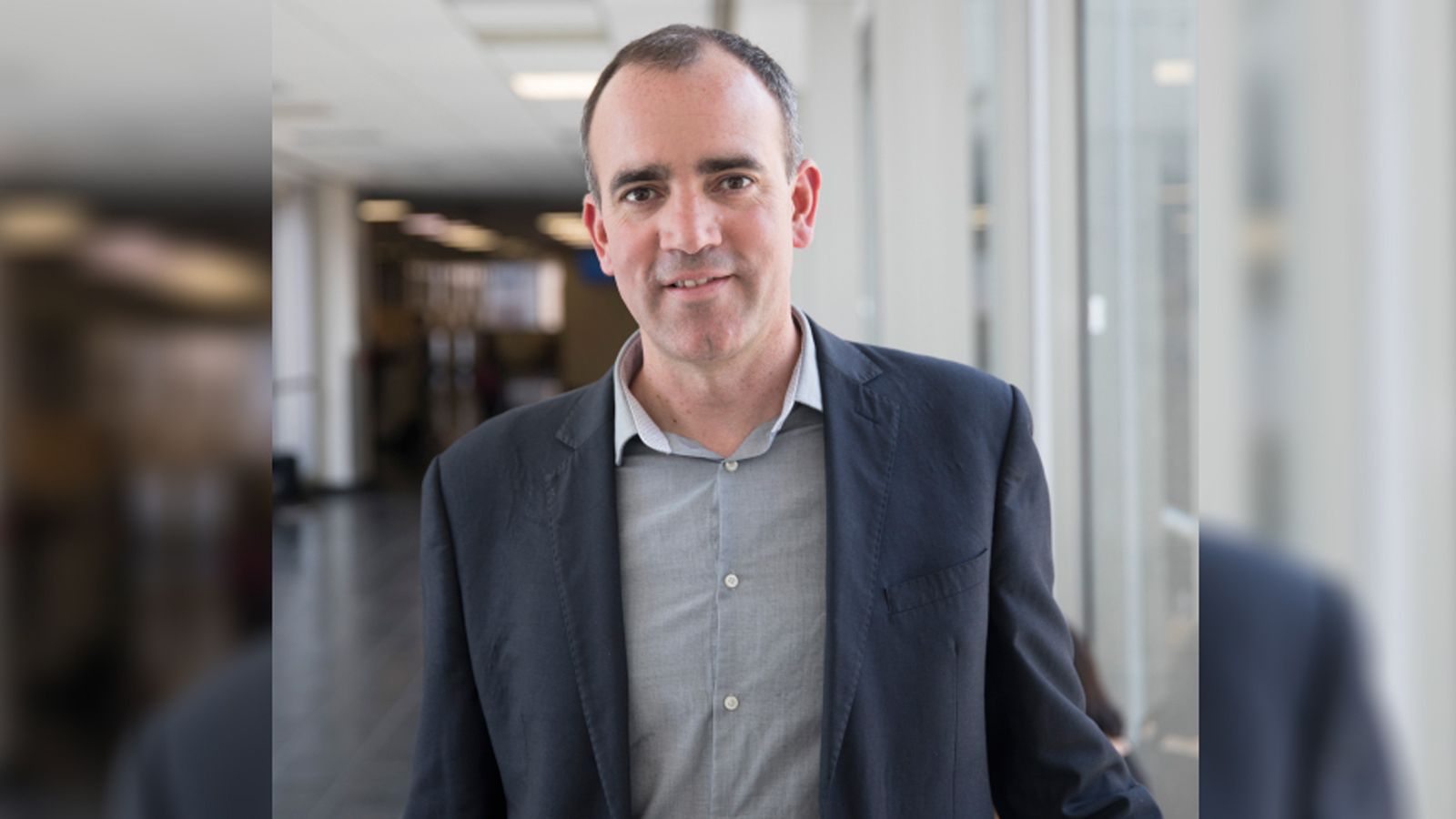“When you look around a room, it’s easy to tell the difference between things that are living and things that aren’t,” says Dr. Rein Ulijn, Albert Einstein Professor of Chemistry, and Director of the Nanoscience Initiative at CUNY. “Living things move, they use energy, they metabolize, they change over time. Non-living things usually don’t do very much—they just sit there.” But what if scientists were able to infuse some of the defining qualities of living organisms into manmade, non-living materials? A new study published in Nature Chemistry, detailing an ambitious project spearheaded by Professor Ulijn and his team of researchers at the Advanced Science Research Center (ASRC) at the Graduate Center, has demonstrated significant progress in the attempt to bridge the gap between the living and the electronic. Their paper, "Amino-acid-encoded biocatalytic self-assembly enables the formation of transient conducting nanostructures," presents the strides their lab has made to create nanomaterials that show the dynamic behavior of biological materials, but also conduct electricity.
“We are working on the challenge of interfacing living biology—like nerve cells and neurons—with electronics,” says Professor Ulijn. It sounds radical—the notion of connecting electronics and biology—but with his team’s newest discoveries, the line between hard, manmade materials, and complex, flexible biological ones, is starting to blur. “The brain’s neurons communicate through electronic signals, and we’re interested in making materials that can deliver those same kinds of electronic signals to tissue. Electronic devices like iPhone and computer chips are hard and static, and the brain is soft and malleable. So, if you want to make technology that connects the hard engineering world and the soft dynamic world of biology, you have to think of ways to apply biological properties to manmade materials.”
These new materials are startlingly flexible; they can change their properties in response to chemical signals and metabolites. The researchers have used amino acids as chemical triggers for the materials to reconfigure; these nanomaterials can remodel their own electrical connections, and can exist in wet, dynamic environments, growing and degrading on command. And, with the creation of synthetic materials that behave with biological properties, science is getting closer to a seamless interaction between living materials and nonliving materials. This presents huge opportunities for medical treatments; if disease is biology gone wrong, these new copacetic manmade materials may be able to step in and, using biological properties, right the problems that disease created. “If you want to influence something, you have to speak its language,” Professor Ulijn says. These new nano materials increasingly use the same chemical language as biological neurons, creating more possibility for behavioral conversation—and biological repair.
This recently published paper, in the works for 2.5 years, draws on the ongoing research of Professor Ulijn’s expert team at the ASRC, and includes a collaboration with Professor Allon Hochbaum at the University of California, Irvine, who developed the devices to demonstrate the dynamic conductance. The team also included Hunter PhD candidate Nadeesha Wijerathne. Their project on amino acid chemical technology, while still in nascent stages, holds radical potential: “We’ve demonstrated a new exciting concept, and very much look forward to working with colleagues in the applied sciences and clinical fields to develop real technologies,” says Professor Ulijn. “Being in New York City, we’re incredibly well placed to find collaborators, and to see if these materials can be developed in new ways to treat disease.”
Congratulations to Professor Ulijn and his team on this exciting development.


